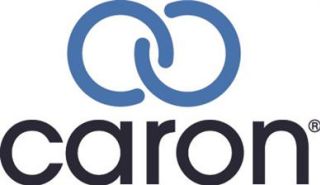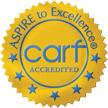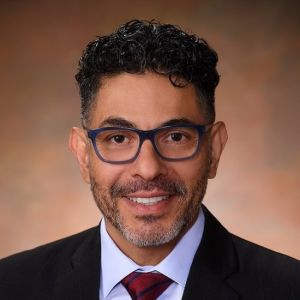








Caron Florida
Verified Center
This provider's information has been quality-checked by Recovery.com's Research Team for accuracy and completeness, including center verification through appropriate third-party organizations.
Treatment Focus
This center treats substance use disorders and co-occurring mental health conditions. Your treatment plan addresses each condition at once with personalized, compassionate care for comprehensive healing.
Primary Level of Care
Offering intensive care with 24/7 monitoring, residential treatment is typically 30 days and can cover multiple levels of care. Length can range from 14 to 90 days typically.
Treatment Focus
This center treats substance use disorders and co-occurring mental health conditions. Your treatment plan addresses each condition at once with personalized, compassionate care for comprehensive healing.
Primary Level of Care
Offering intensive care with 24/7 monitoring, residential treatment is typically 30 days and can cover multiple levels of care. Length can range from 14 to 90 days typically.
Provider's Policy
Caron has negotiated in-network contracts with several insurance providers for both inpatient and outpatient care. We accept insurance for many residential programs in Florida, and other locations, to make treatment for substance use disorder accessible to the growing number of people who need it and help them achieve recovery for life.
Caron Florida
Caron Florida
About Caron Florida
Caron Florida offers personalized neuroscience-based recovery programs to help patients experiencing substance use disorder achieve what once seemed impossible. Their state-of-the-art medical center operates with 24/7 staffing and delivers medical detox and residential treatment. They provide specialized programs designed to address the distinct challenges faced by young adults, professionals, older adults with complex medical needs, and highly affluent clients.
Rewire the Brain for Long-Term Recovery
Caron’s approach integrates advanced neurorestorative therapies that capitalize on neuroplasticity to rewire the brain, optimize function, and aid and advance the body’s natural ability to heal itself, creating a foundation for self-regulation and resilience. Their treatment programs blend the latest evidence-based medical and psychological practices with proven addiction treatment methods like cognitive behavioral therapy (CBT), dialectical behavior therapy (DBT), 12-Step integration, and motivational interviewing. In addition, each patient’s treatment plan incorporates fitness and nutrition to promote good health.
Recover in Elevated Clinical Comfort
Located in Delray Beach, Caron Florida delivers a hotel-like experience within a 100,000-square-foot medical center designed for comfort, privacy, and clinical excellence. Clients stay in spacious living quarters in private or shared, well-appointed rooms. The campus features a fitness center with personal trainers, outdoor pools with lounge chairs, indoor lounges for relaxation and recreation, and an on-site salon. All medical services, detox, treatment, dining, and amenities are conveniently situated, supporting a seamless daily routine.
Stay Supported After Residential Treatment
Continuing care is available through Caron’s intensive outpatient (IOP) and outpatient programs to help increase readiness for life in recovery. Each patient receives a personalized continuing care plan that can include alumni support activities, virtual support groups, and multi-day Breakthrough workshops to help them practice the change they hope to achieve in small, intimate groups.

Highlights from the Center
Highlights
These highlights are provided by and paid for by the center.
Pool
On-site Medical Detox
Private Rooms Available
Executive Treatment
Center Overview
Treatment Focus
This center treats substance use disorders and co-occurring mental health conditions. Your treatment plan addresses each condition at once with personalized, compassionate care for comprehensive healing.
CARF Accredited
CARF stands for the Commission on Accreditation of Rehabilitation Facilities. It's an independent, non-profit organization that provides accreditation services for a variety of healthcare services. To be accredited means that the program meets their standards for quality, effectiveness, and person-centered care.

Caron Florida
Insurance Accepted
Cash Pay Rates
Estimated Cash Pay Rate
Center pricing can vary based on program and length of stay. Contact the center for more information. Recovery.com strives for price transparency so you can make an informed decision.




More Caron Centers To Consider
Recovery.com Verified Listing
Recovery.com verified that the name, location, contact information and license to operate for this treatment provider are valid and up-to-date.

Licensed by Florida

CARF Accredited
Recovery.com is an independent, third-party mental health resource. Verification does not imply endorsement and does not guarantee the quality of treatment services.
Meet Your Care Team

Dr. Adam D. Scioli
Chief Medical Officer and Program Director, Caron/Tower Addiction Medicine Fellowship
D.O., DFAPA, FASAM, FAOAAM

Javier Ley
Executive Vice President of Caron's Florida Campus
MA, MS, LPC, LCAC, DPC

Dr. Barbara Krantz
Medical Director of the Neurocognitive Assessment Program
D.O., MS, DFASAM, MRO

Madeleine Narvilas
Sr. Clinical Director Ocean Drive and Older Adult
LCSW, Esq.

Manuel Garcia
Senior Clinical Director of Caron's Florida Campus
MA, LADC

Dr. Mohammad Sarhan
Medical Director, Caron Florida
MD, FASAM, DABIM, DipACLM

Ciaran Tracey
Corporate Director of Neurotherapy
MS, QEEG-D

Dr. Maggie Tipton
Senior Director of Psychological Services
Psy. D

Alison L. VanHorn
Clinical Supervisor
MA, MSW, CAP, NIP

Dr. Secquay Gordon
Family Therapist
Ph.D., LMFT, CSAT

Dr. Amber Deckard
Director of Neuro-Psychological Services and the Neurocognitive Assessment Program (NAP)
Psy. D, NPT-C

Dr. Juan Franco
Addiction Medicine Physician
MD, FACOG

Sheralyn Anstis
Primary Therapist
M.Ed., CRC
Your Care Options
Specializations
Residential
In a residential rehab program, patients live onsite, with access to daily treatment and 24-hour care. An average stay is 30-90 days.
Co-Occurring Disorders
A person with multiple mental health diagnoses, such as addiction and depression, has co-occurring disorders also called dual diagnosis.
Young Adults
Emerging adults ages 18-25 receive treatment catered to the unique challenges of early adulthood, like college, risky behaviors, and vocational struggles.
Executives
Executive treatment programs typically directly support the needs of people who manage businesses and may provide flexible schedules and office space to allow work during treatment.
Intensive Outpatient Program
In an IOP, patients live at home or a sober living, but attend treatment typically 9-15 hours a week. Most programs include talk therapy, support groups, and other methods.
Older Adults
Addiction and mental health treatment caters to adults 55+ and the age-specific challenges that can come with recovery, wellness, and overall happiness.
Detox
Detox fully and safely removes toxic substances from the body, allowing the next steps in treatment to begin with a clean slate.
Alcohol
Using alcohol as a coping mechanism, or drinking excessively throughout the week, signals an alcohol use disorder.
Who We Treat
Men and Women
Men and women attend treatment for addiction in a co-ed setting, going to therapy groups together to share experiences, struggles, and successes.
Executives
Executive treatment programs typically directly support the needs of people who manage businesses and may provide flexible schedules and office space to allow work during treatment.
Older Adults
Addiction and mental health treatment caters to adults 55+ and the age-specific challenges that can come with recovery, wellness, and overall happiness.
LGBTQ+
Addiction and mental illnesses in the LGBTQ+ community must be treated with an affirming, safe, and relevant approach, which many centers provide.
Professionals
Busy, high-ranking professionals get the personalized treatment they need with greater accommodations for work, privacy, and outside communication.
Treatment Services
Residential
In a residential rehab program, patients live onsite, with access to daily treatment and 24-hour care. An average stay is 30-90 days.
Outpatient
During outpatient rehab, patients attend a structured treatment program while continuing to live at home.
Intensive Outpatient Program
In an IOP, patients live at home or a sober living, but attend treatment typically 9-15 hours a week. Most programs include talk therapy, support groups, and other methods.
Detox
Detox fully and safely removes toxic substances from the body, allowing the next steps in treatment to begin with a clean slate.
Approaches
Evidence-Based
A combination of scientifically rooted therapies and treatments make up evidence-based care, defined by their measured and proven results.
Family Involvement
Providers involve family in the treatment of their loved one through family therapy, visits, or both–because addiction is a family disease.
Individual Treatment
Individual care meets the needs of each patient, using personalized treatment to provide them the most relevant care and greatest chance of success.
Therapies
Spiritual Care
Tending to spiritual health helps treatment become more effective, allowing patients to better cope with their emotions and rebuild their spiritual wellbeing.
1-on-1 Counseling
Patient and therapist meet 1-on-1 to work through difficult emotions and behavioral challenges in a personal, private setting.
Family Therapy
Family therapy addresses group dynamics within a family system, with a focus on improving communication and interrupting unhealthy relationship patterns.
Twelve Step Facilitation
12-Step groups offer a framework for addiction recovery. Members commit to a higher power, recognize their issues, and support each other in the healing process.
Trauma-Specific Therapy
This form of talk therapy addresses any childhood trauma at the root of a patient's current diagnosis.
Life Skills
Teaching life skills like cooking, cleaning, clear communication, and even basic math provides a strong foundation for continued recovery.
Conditions We Treat
Post Traumatic Stress Disorder
PTSD is a long-term mental health issue caused by a disturbing event or events. Symptoms include anxiety, dissociation, flashbacks, and intrusive thoughts.
Anxiety
Anxiety is a common mental health condition that can include excessive worry, panic attacks, physical tension, and increased blood pressure.
Depression
Symptoms of depression may include fatigue, a sense of numbness, and loss of interest in activities. This condition can range from mild to severe.
Grief and Loss
Grief is a natural reaction to loss, but severe grief can interfere with your ability to function. You can get treatment for this condition.
Internet Addiction
Internet addiction is common among children teens. This compulsive disorder can damage relationships, school performance, sleep habits, and physical health.
Stress
Stress is a natural reaction to challenges, and it can even help you adapt. However, chronic stress can cause physical and mental health issues.
Bipolar
This mental health condition is characterized by extreme mood swings between depression, mania, and remission.
Trauma
Some traumatic events are so disturbing that they cause long-term mental health problems. Those ongoing issues can also be referred to as "trauma."
Chronic Pain Management
Long-term physical pain can have an affect on mental health. Without support, it can also impact your daily life and even lead to addiction.
Substances We Treat
Cocaine
Cocaine is a stimulant with euphoric effects. Agitation, muscle ticks, psychosis, and heart issues are common symptoms of cocaine abuse.
Prescription Drugs
It's possible to abuse any drug, even prescribed ones. If you crave a medication, or regularly take it more than directed, you may have an addiction.
Benzodiazepines
Benzodiazepines are prescribed to treat anxiety and sleep issues. They are highly habit forming, and their abuse can cause mood changes and poor judgement.
Co-Occurring Disorders
A person with multiple mental health diagnoses, such as addiction and depression, has co-occurring disorders also called dual diagnosis.
Drug Addiction
Drug addiction is the excessive and repetitive use of substances, despite harmful consequences to a person's life, health, and relationships.
Chronic Relapse
Consistent relapse occurs repeatedly, after partial recovery from addiction. This condition requires long-term treatment.
Heroin
Heroin is a highly addictive and illegal opioid. It can cause insomnia, collapsed veins, heart issues, and additional mental health issues.
Languages
Aftercare
Care Designed for Your Needs
Personal Amenities
Amenities
Special Considerations
LGBTQ group
Group therapy unites LGBTQ+ patients in a safe and culturally competent setting, encouraging peer support under the expert leadership of a therapist.
Flexible technology policies
Centers with flexible technology policies allow professionals to stay in touch with work and give patients a greater sense of connection and normalcy.
Executive Program
Addiction and mental health treatment for executives typically involves high discretion, greater technology access, and more private, 1-on-1 care.
Activities
Off-Site Activities

Learn More About the Center
Renaissance Program for College & Career Success
Build momentum toward academic and professional goals while strengthening recovery.
Family Programming
Strengthen healing by repairing communication, rebuilding trust, and supporting recovery through guided family involvement.
Monarch Program for Older Adults
Receive specialized addiction treatment alongside advanced medical care designed for older adults with complex needs.
Ocean Drive Program for Affluent Adults
Maintain privacy, professional continuity, and elevated comfort through concierge-supported addiction treatment for affluent adults.





